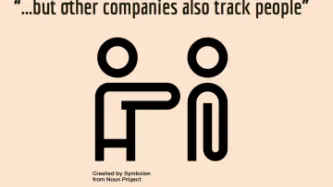Advanced Search
Content Type: Advocacy
In May 2024, we made a submission for the forthcoming report of the UN Special Rapporteur on the right to education to the General Assembly in October 2024.
Amongst others we recommend the UN Special Rapporteur for this upcoming report to:
Underline the need for a human rights-based approach to all AI systems in the education sector and describe the necessary measures to achieve it.
Reassert that any interference with the right to privacy and the advancement of the right to education due to…
Content Type: Long Read
Social media is now undeniably a significant part of many of our lives, in the UK and around the world. We use it to connect with others and share information in public and private ways. Governments and companies have, of course, taken note and built fortunes or extended their power by exploiting the digital information we generate. But should the power to use the information we share online be unlimited, especially for governments who increasingly use that information to make material…
Content Type: Long Read
What if your boss was an algorithm? What would you do if your employer suddenly fired you or reduced your pay without telling you why? And without being willing to give you a reason when you ask for one?
This is not science fiction or some far-fetched reality. Millions of people worldwide are working in the gig economy sector for companies like Uber, Deliveroo, Bolt, Just Eat… And this could be the future of work for people working outside the gig economy, as surveillance technologies are…
Content Type: Video
Update: Pa has since won a settlement from UberPlease note the views expressed in the video are interviewee's own and do not necessarily reflect the views of PI.Pa used to work for Uber. After some time, Uber started asking him to submit a picture of himself to the platform to confirm it was indeed him who had completed the job. However, with time, the frequency of the requests increased. In the beginning, the requests for a picture only happened once a week, but as time went by Pa told us that…
Content Type: News & Analysis
In September 2019, PI published the report Your Mental Health for Sale. Our investigation looked into popular mental health websites and their data sharing practices.
Our findings suggest that, at the time of the research, most websites we looked at were using third party tracking for advertising purposes, sometimes relying on programmatic advertising technologies such as Real Time Bidding (RTB), sharing personal data with potentially thousands of actors. Some websites were also found sharing…
Content Type: Long Read
Introduction
In August 2019, when Facebook announced a few new features for advertisers such as ads in search, PI decided to take an in-depth look at what features the company offers its users when it comes to understanding its advertising practices. One of these features, which caught our attention is Facebook Ads Preference, a tool that among other things, lists businesses/advertisers that have uploaded your personal data to target you with (or exclude you from) ads on the platform.
Content Type: Video
Watch our video primer (1m54s) on how political advertisers use highly detailed data about you to target political adverts at you.
Read about some simple steps you can take to minimise the amount of political ads you see online and questions you can be asking of those that profit from your data.
Content Type: News & Analysis
In December 2018, we revealed how some of the most widely used apps in the Google Play Store automatically send personal data to Facebook the moment they are launched. That happens even if you don't have a Facebook account or are logged out of the Facebook platform (watch our talk at the Chaos Communication Congress (CCC) in Leipzig or read our full legal analysis here).Today, we have some good news for you: we retested all the apps from our report and it seems as if we…
Content Type: Impact Case Study
What is the problem
Business models of lots of companies is based on data exploitation. Big Tech companies such Google, Amazon, Facebook; data brokers; online services; apps and many others collect, use and share huge amounts of data about us, frequently without our explicit consent of knowledge. Using implicit attributes of low-cost devices, their ‘free’ services or apps and other sources, they create unmatched tracking and targeting capabilities which are being used against us.
Why it is…
Content Type: Impact Case Study
What happenedIn the aftermath of 9/11, Governments across the world rushed to legislate to expand surveillance. GovernmentsMoved to limit debate and reduce consultations as they legislated with speed.Created new systems to collect data on all travellers, for the purpose of profiling and risk scoring.Expanded identity schemes, and began demanding biometrics, particularly at borders.Developed financial surveillance mechanisms on an unprecedented scale.What we didFew non-governmental…
Content Type: Impact Case Study
What happenedStrong and effective data protection law is a necessary safeguard against industry and governments' quest to exploit our data. A once-in-a-generation moment arose to reform the global standard on data protection law when the European Union decided to create a new legal regime. PI had to fight to ensure it wasn't a moment where governments and industry would collude to reduce protections.In January 2012, the European Commission published a proposal to comprehensively reform the…











